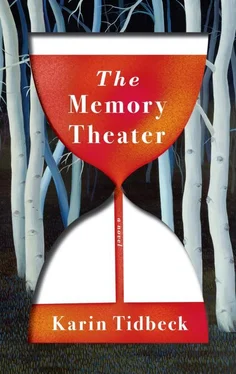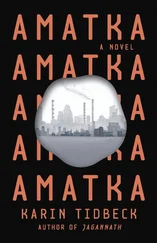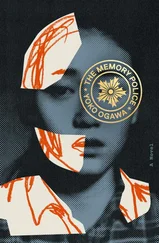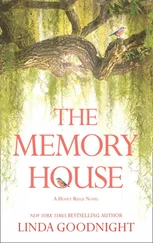“So explain it to me,” Augusta said.
Pinax smiled at her. “Perhaps if we were friends, I might. But so far I don’t know that I trust you.”
“But we are friends.” Augusta gestured at the table. “I brought you cake, you made tea, we are having it together.”
“You’re only interested in what I can do for you,” Pinax said.
“Yes,” Augusta replied. “That’s why you’re my friend, because you can do something for me. You can help me find Phantasos, so I can go home.”
Pinax raised an eyebrow. “That is not how friendship works.”
“Then how does it work?” said Augusta in exasperation.
“Friendship,” Pinax said, “is not an exchange of gifts. Friendship is built on trust. I don’t know if you are trustworthy, Augusta. I don’t know that I can trust you with the information you seek. You are uncultured and rude. But I see potential in you. And that potential person might be a friend of mine.”
Augusta scoffed. “I am not uncultured and rude. I am a lady.”
“Perhaps in your world and your time. But I need to see that you have some sort of conscience,” Pinax said. “That you will use the information I have wisely.”
“But I am wise,” Augusta said. “I’m clever.”
Pinax sighed. “Let’s call it a mentorship for now. I will teach you things.”
“If I learn things, will you tell me where to find Phantasos?”
“Perhaps. Come back tomorrow and we will talk more.”
—
Augusta returned home only to realize that she had no maid. She wandered down the street until she spotted a young man who looked appropriate. He followed without protest, although he kept asking questions. Who was Augusta? Where were they going? What was he supposed to do? He became more pliable after a beating. Augusta settled in her room to wait. She would have to have patience until Pinax gave her the information she needed.
“Trees!” Thistle said weakly, and pointed at the horizon, where shapes rose like slender fingers against the sky.
He was beginning to weigh on Dora’s back now. Her feet were heavy, and her arms were tired from holding on to Thistle’s legs. Still, she would not put him down. He was more tired than she was.
The tall grass gave way to dusty gravel. Ahead lay a stone city, its border guarded by enormous, forbidding statues. A naked woman with wings and bird feet held a sharp-looking hook in her hand. A cloaked figure rested its bony hand on a scythe. A man with a canine head held a staff and a looped cross. A twisted old woman in robes brandished a long knife. As Dora walked in among them, the statues seemed to stare at her, although not in a hostile way; it was more as if she were being studied and measured.
A road flanked by those tall trees led through the metropolis. The stone buildings on either side were in a jumble of wildly different styles: pyramids, columned temples, ornate tents, simple slabs leaned against one another. Eventually, they came to an open space, a square intersected by a wide canal with an arched bridge. Thistle climbed down from Dora’s back.
On the other side of the canal stood a house unlike the others. It was made of wood, with a pointed metal-tiled roof and stained-glass windows, and it sat on three pairs of large spoked wheels. It looked like a carriage of some sort, if a carriage could also be a house. Dora could hear the drone of voices and snatches of music. She walked across the bridge. Thistle followed in her wake.
Thistle peeked in through the nearest arched window, which sat just low enough that he could reach it. The light from the inside cast his face in jewel tones. Dora looked over his shoulder. The room was unfurnished; the floor planks were naked. The light came from a huge chandelier that hung from the ceiling, set with scores of candles. Nothing moved in there, but still the noise from something like a party bled outside. A multitude of voices, the clink of glass, a melody played on strings. Dora circled the structure. The long wall on the other side was set with wide stairs that almost, but not quite, touched the ground. It did not, however, have a door. Just more windows. Dora climbed the stairs and looked inside. The room looked empty, just like it had from the other side. She heard Thistle rapping on the glass. The noise remained unchanged.
“No door?” Thistle said as he came around the corner.
“No door,” Dora replied.
“Should we break in?” Thistle asked.
The sound of shrill pipes in the distance interrupted Dora before she could reply.
A small procession came walking up the road to the square and stopped on the middle of the bridge. Two people draped in white carried a bier, on which rested a human form under a sheet. The tan young man who carried the back end had curly brown hair and a square face; the girl at the front was rosy and wiry, her dark blond hair in a simple twist slung across her shoulder. At the head of the procession walked an older woman, stout and powerful but bent in sorrow. She wore layers of white linen, brilliant against her brown skin. A crown of twigs sat atop her braided black hair. She was playing a double-piped flute, an insistent and weeping melody that harmonized with itself in chords that made Dora clap her hands over her ears.
The pallbearers set the bier down on the ground. The older woman lowered her flute. Then they all stared at Dora and Thistle as one. When the older woman spoke, her voice was deep and sonorous.
“Who disturbs our rites?”
“Hello,” Dora said.
Thistle bowed. “Madam, I am called Thistle, and my companion Dora.”
Dora didn’t bow. “Who are you? Who is the dead person?” she said.
The girl peeled the sheet back. The man on the bier was dressed in an oilcloth jacket over a gray knitted sweater. He wore a cap that obscured his eyes, but his cheeks were coarse and weather-beaten.
Dora pointed. “Who is that?”
Thistle pinched her arm.
“He was a fisherman,” the crowned woman intoned. “A simple man, a god-fearing man.”
“He was Knut Olesen of Lillesand,” the young man filled in. “The first victim of a great invasion.”
“He had made the best catch in a decade when they killed him,” said the girl. “He was forty-three years old.”
The older woman gestured at the canal. “We come to lay him to rest.”
She raised her hands to the sky, as did the young man and the girl.
“Gods of death, hear me,” she said. “We consign this man to you.”
The young man bent down and picked up the back of the bier. The corpse slid into the water without leaving so much as a ripple.
“So ends Knut Olesen’s story,” the woman said.
“So ends the story,” the others said in unison.
They stood with their heads bowed for a moment. Then, improbably, the girl broke into a grin. The older woman nodded and smiled.
“Well done,” she said to the others.
There was a splash from the canal.
“Well, that was wet,” a voice said.
An old man rose out of the water and climbed onto the cobblestones. He looked nothing like Knut Olesen the fisherman, but he was wearing the same clothes, now soaked. His face was alive and draped in kindly folds. He walked onto the bridge and joined hands with the tall woman. The pallbearers joined them on either side. They bowed as one.
“You have seen The First Victim !” the crowned woman said. “I present to you, in order of appearance: our beloved Nestor, as Knut Olesen!”
The old man stepped forward, flinging his arms out like a dancer.
“Journeyman, as Pallbearer One!”
The young man bowed solemnly.
“Apprentice, as Pallbearer Two!”
The girl bobbed a quick curtsy.
“And finally”—the woman herself stepped up—“the High Priestess, played by yours truly. I am Director, and I hope you have enjoyed our show, whoever you are and wherever you may be.”
Читать дальше










![Карин Тидбек - Аматка [ЛП]](/books/438406/karin-tidbek-amatka-lp-thumb.webp)

